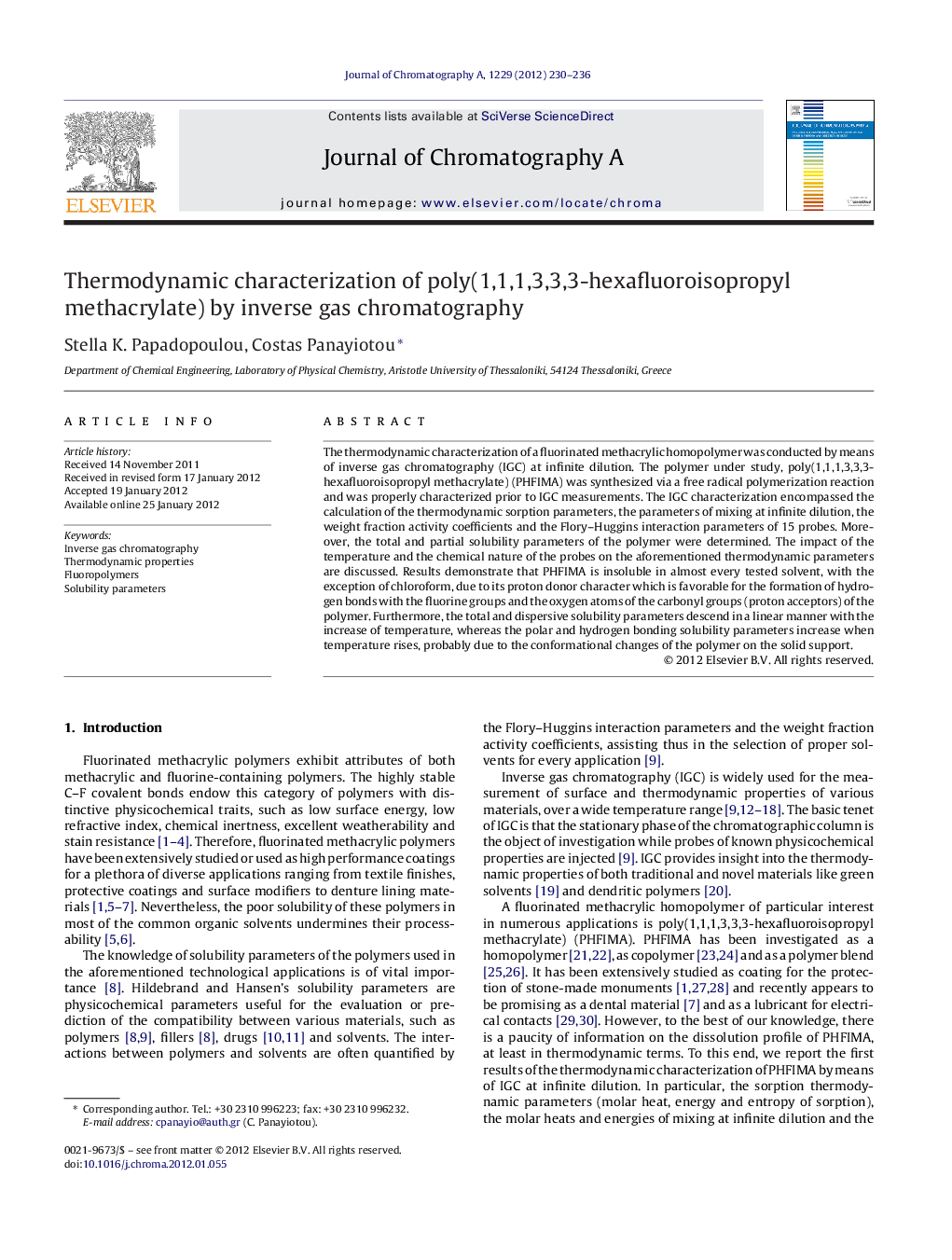| کد مقاله | کد نشریه | سال انتشار | مقاله انگلیسی | نسخه تمام متن |
|---|---|---|---|---|
| 1203052 | 1493696 | 2012 | 7 صفحه PDF | دانلود رایگان |

The thermodynamic characterization of a fluorinated methacrylic homopolymer was conducted by means of inverse gas chromatography (IGC) at infinite dilution. The polymer under study, poly(1,1,1,3,3,3-hexafluoroisopropyl methacrylate) (PHFIMA) was synthesized via a free radical polymerization reaction and was properly characterized prior to IGC measurements. The IGC characterization encompassed the calculation of the thermodynamic sorption parameters, the parameters of mixing at infinite dilution, the weight fraction activity coefficients and the Flory–Huggins interaction parameters of 15 probes. Moreover, the total and partial solubility parameters of the polymer were determined. The impact of the temperature and the chemical nature of the probes on the aforementioned thermodynamic parameters are discussed. Results demonstrate that PHFIMA is insoluble in almost every tested solvent, with the exception of chloroform, due to its proton donor character which is favorable for the formation of hydrogen bonds with the fluorine groups and the oxygen atoms of the carbonyl groups (proton acceptors) of the polymer. Furthermore, the total and dispersive solubility parameters descend in a linear manner with the increase of temperature, whereas the polar and hydrogen bonding solubility parameters increase when temperature rises, probably due to the conformational changes of the polymer on the solid support.
► Solubilization profile of a fluorinated methacrylic polymer, explored by IGC.
► Poor solubility of the polymer in various solvents even at high temperatures.
► Total and dispersive solubility parameters decrease with the rise of temperature.
► Polar and hydrogen-bonding solubility parameters increase when temperature rises.
► Results are influenced by the polymer's and probes’ ability to form hydrogen bonds.
Journal: Journal of Chromatography A - Volume 1229, 16 March 2012, Pages 230–236